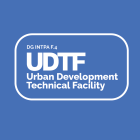Briefing of African Urban Forum (AUF), 2024
The first-ever African Urban Forum (AUF), held in Addis Ababa from 4 to 6 September 2024, marked a relevant moment for sustainable urbanisation in Africa. Organised by the African Union (AU) with support from Ethiopia and UN Habitat, the forum launched a continent-wide platform to address the challenges and opportunities posed by rapid urban growth, climate change, and inclusive development. The establishment of the AUF reflects that AU seeks to put more emphasis on urban development in Africa’s Agenda 2063 and its future implementation plan, marking a key milestone in urban development across the continent and became the vital platform for discussing sustainable urbanisation.
Key outcomes
- Adoption of the AUF Declaration on Urban Development: This declaration emphasizes the urgent need for sustainable urbanization and climate-resilient development. While urbanization was absent from the second 10-year implementation plan of Africa’s Agenda 2063, the declaration sets a precedent for future policy collaboration. According to the technical committee of the Africa Union (AU) on urban development through bilateral exchanges, the Declaration received strong awareness and collective commitment from African leaders and stakeholders.
- Launch of the Africa Urban Resilience Programme (AURP): This framework aims to strengthen urban risk management policies and institutional capacities, with support from stakeholders including the EU.
- Launch of a global database on urban areas: A harmonized dataset, backed by the Degree of Urbanisation methodology, provides comprehensive insights into cities worldwide, supporting Sustainable Development Goals (SDGs). • Covenant of Mayors in Sub-Saharan Africa (CoMSSA): The EU-funded CoMSSA program facilitated significant participation from African mayors and officials, contributing to 25 AUF sessions. The program’s Regional Mayors’ Forum produced a roadmap to COP30 Belém, with priorities such as operationalizing a loss and damage fund for subnational governments and improving urban climate finance.
AUF Declaration
The AUF Declaration emphasizes aligning urbanisation with sustainable development and climate resilience, urging the creation of national urban policies, strengthening city capacities, and addressing informal settlements while leveraging regional integration through the African Continental Free Trade Area. It calls for prioritising urban management within the African Union framework, developing cohesive policies, and supporting institutional oversight through the AU-STC-8. Innovative financing models such as green bonds, public-private partnerships, and climate finance are promoted to fund resilient infrastructure and affordable housing, empowering cities to mobilize local resources and adopt digital solutions.
The Declaration highlights the need for capacity building, digital transformation, and knowledge sharing through initiatives like an annual Urban Development Week and robust reporting systems. Partnerships with regional institutions, development banks, NGOs, and marginalised groups are prioritised to ensure inclusive urban growth, advocacy, and diverse collaboration for sustainable urbanisation.
EU takeaways
The EU’s active involvement in the AUF showcased its commitment to addressing urban challenges and fostering partnerships across Africa. Highlights included:
- EU-led Sessions and Contributions: such as INTPA F4’s session on “Enabling Cities to enhance their economic linkages through access to transport corridors” or JRC’s session on “Cities in a Global Perspective, Applying the Degree of Urbanisation”. As well as participation in other sessions. • Strengthened Bilateral Engagement: Meetings with key stakeholders, including UN Habitat and African Union officials, emphasized the EU’s role in urban policy development. The EU’s ongoing focus on urban resilience, slum improvement, and sustainable finance is poised to deepen under its next programming cycle.
Looking Ahead
The AUF laid the groundwork for intensified international cooperation to tackle Africa’s urbanisation challenges. For the EU, it reaffirmed its strategic role in supporting urban transformation, aligning with global sustainability goals while advancing shared priorities in climate action and inclusive development.
